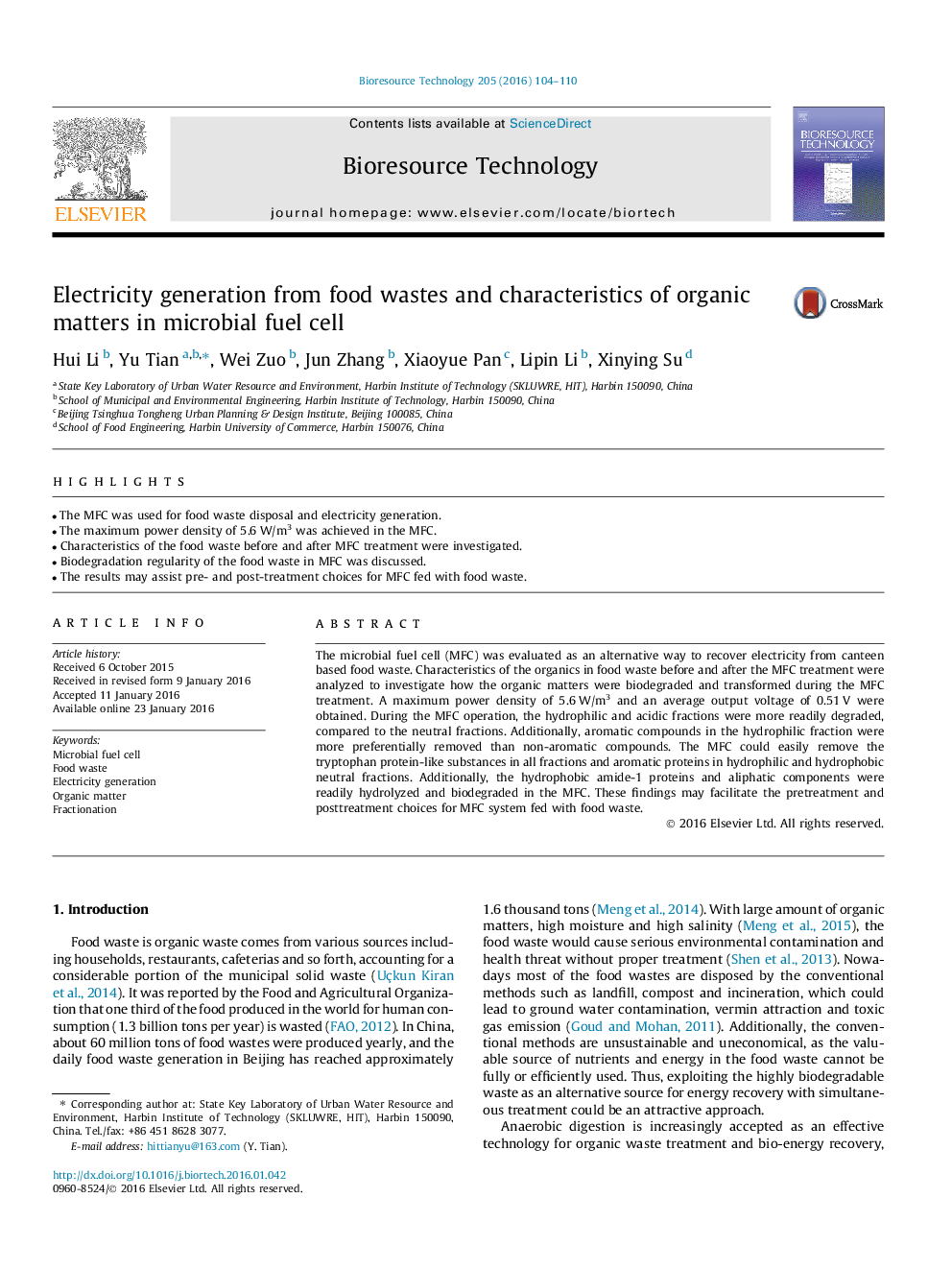| Article ID | Journal | Published Year | Pages | File Type |
|---|---|---|---|---|
| 679263 | Bioresource Technology | 2016 | 7 Pages |
Abstract
The microbial fuel cell (MFC) was evaluated as an alternative way to recover electricity from canteen based food waste. Characteristics of the organics in food waste before and after the MFC treatment were analyzed to investigate how the organic matters were biodegraded and transformed during the MFC treatment. A maximum power density of 5.6Â W/m3 and an average output voltage of 0.51Â V were obtained. During the MFC operation, the hydrophilic and acidic fractions were more readily degraded, compared to the neutral fractions. Additionally, aromatic compounds in the hydrophilic fraction were more preferentially removed than non-aromatic compounds. The MFC could easily remove the tryptophan protein-like substances in all fractions and aromatic proteins in hydrophilic and hydrophobic neutral fractions. Additionally, the hydrophobic amide-1 proteins and aliphatic components were readily hydrolyzed and biodegraded in the MFC. These findings may facilitate the pretreatment and posttreatment choices for MFC system fed with food waste.
Related Topics
Physical Sciences and Engineering
Chemical Engineering
Process Chemistry and Technology
Authors
Hui Li, Yu Tian, Wei Zuo, Jun Zhang, Xiaoyue Pan, Lipin Li, Xinying Su,
